Introduction
In a world where businesses face constant upheaval and rapid change, interim management services have emerged as a vital solution for organizations navigating challenges and transitions. These services provide access to specialized expertise, enabling companies to implement swift and effective strategies that drive performance and enhance operational efficiency. From cost-effective hiring to leveraging real-time data analytics, interim managers are equipped to tackle specific sector challenges, whether in retail, healthcare, or technology.
This article delves into the multifaceted advantages of interim management, offering insights on strategic implementation, cost considerations, and emerging trends that can empower organizations to thrive in an ever-evolving landscape.
Key Advantages of Interim Management Services
Interim management services provide a plethora of advantages for organizations facing challenges or transitions. Here are some key benefits:
-
Expertise on Demand: Interim leaders bring specialized skills and experience that are often lacking within the organization. They are prepared to tackle specific challenges efficiently, ensuring that organizations can navigate turbulent times with confidence.
-
Rapid Implementation: Interim leaders can hit the ground running, allowing for swift action in crisis situations. Their ability to quickly assess the business landscape and implement necessary changes leads to faster turnaround times. This rapid decision-making is supported by a pragmatic approach to data, where hypotheses are tested to maximize return on invested capital, aligning with the 'Test & Measure' methodology.
-
Cost Efficiency: Engaging an interim leader often proves more cost-effective than hiring a full-time executive. Companies can access high-level expertise without the long-term financial commitment associated with permanent hires.
-
Objective Perspective: Interim leaders provide an unbiased viewpoint, free from internal politics. This objectivity can be invaluable in making tough decisions and driving necessary changes without resistance.
-
Focus on Results: Interim managers are typically performance-driven, with a clear mandate to achieve specific outcomes within a defined timeframe. They employ real-time analytics to monitor success and modify approaches consistently, ensuring that companies remain on course during crucial times. Their dedication to implementing lessons learned improves effectiveness, while the 'Update & Adjust' approach ensures continuous alignment with organizational objectives.
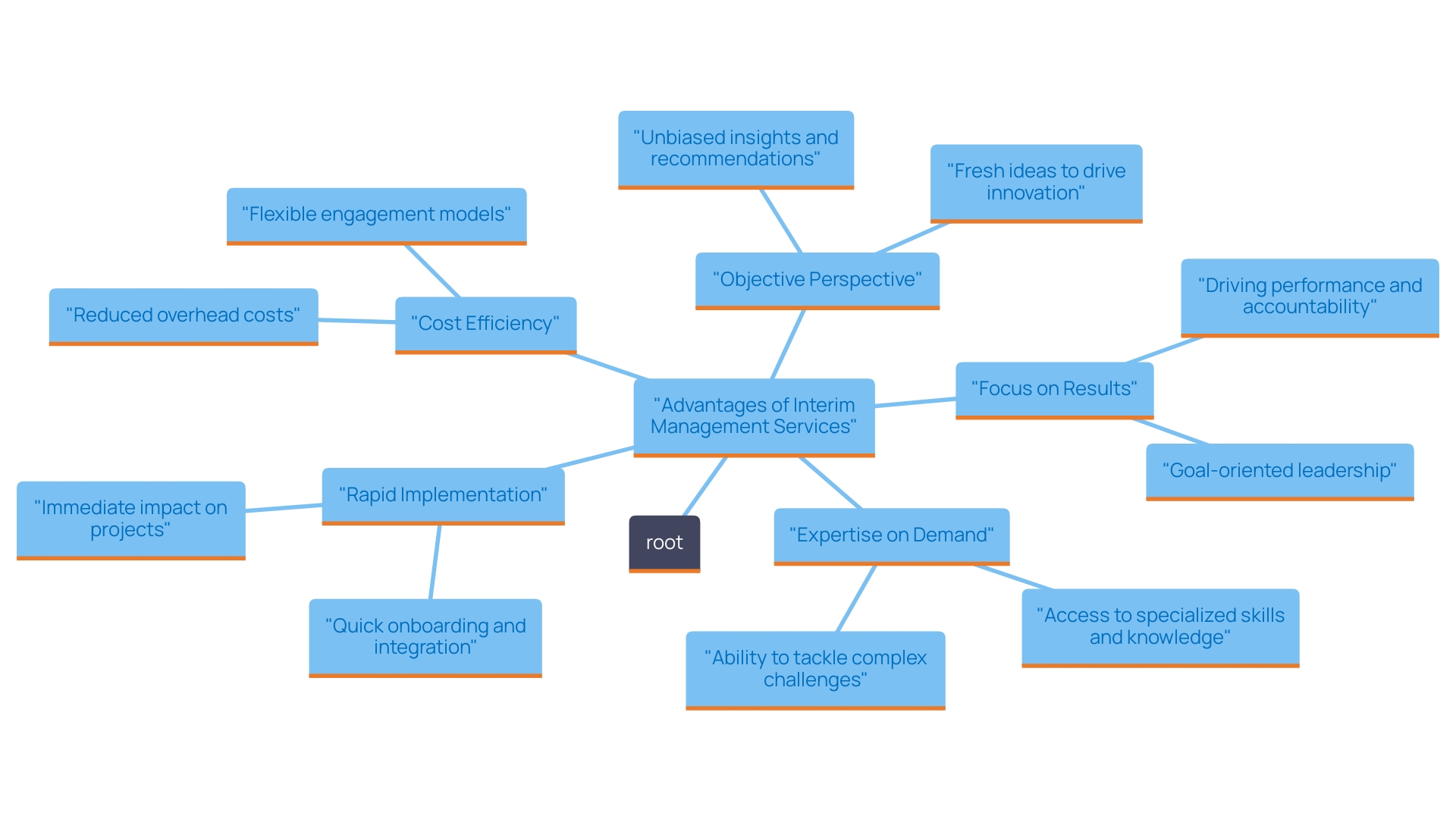
Sector-Specific Benefits of Interim Management
Interim management services offer distinct advantages tailored to specific sectors, particularly through streamlined decision-making and real-time performance monitoring. These services are crucial for effective organizational turnaround strategies. Here are some examples:
-
Retail and Restaurant: In the fast-paced retail and restaurant sectors, temporary leaders can swiftly introduce operational efficiencies, tackle staffing shortages, and improve customer experience. By utilizing real-time analytics, they can make swift decisions crucial for maintaining competitiveness.
-
Hospitality and Leisure: For businesses in hospitality, temporary managers can optimize service delivery and operational standards. Their focus on real-time data allows for continuous monitoring of guest satisfaction, ensuring it remains a top priority during transitional phases or crises.
-
Healthcare: In healthcare, interim management can streamline processes and improve compliance by bringing in experienced professionals. These leaders leverage their understanding of the regulatory landscape to enhance patient care while operationalizing lessons learned through data-driven strategies.
-
Manufacturing: Interim leaders in manufacturing can focus on optimizing supply chain management and production processes. By employing real-time analytics, they ensure that organizations can adapt to market changes and demand fluctuations efficiently.
-
Technology: In the tech sector, temporary managers can drive digital transformation initiatives and assess cybersecurity measures. Their ability to test hypotheses and implement agile methodologies allows companies to keep pace with rapid advancements and competition.
In summary, temporary management services provide essential support across various industries, enabling organizations to navigate challenges effectively and enhance overall performance.
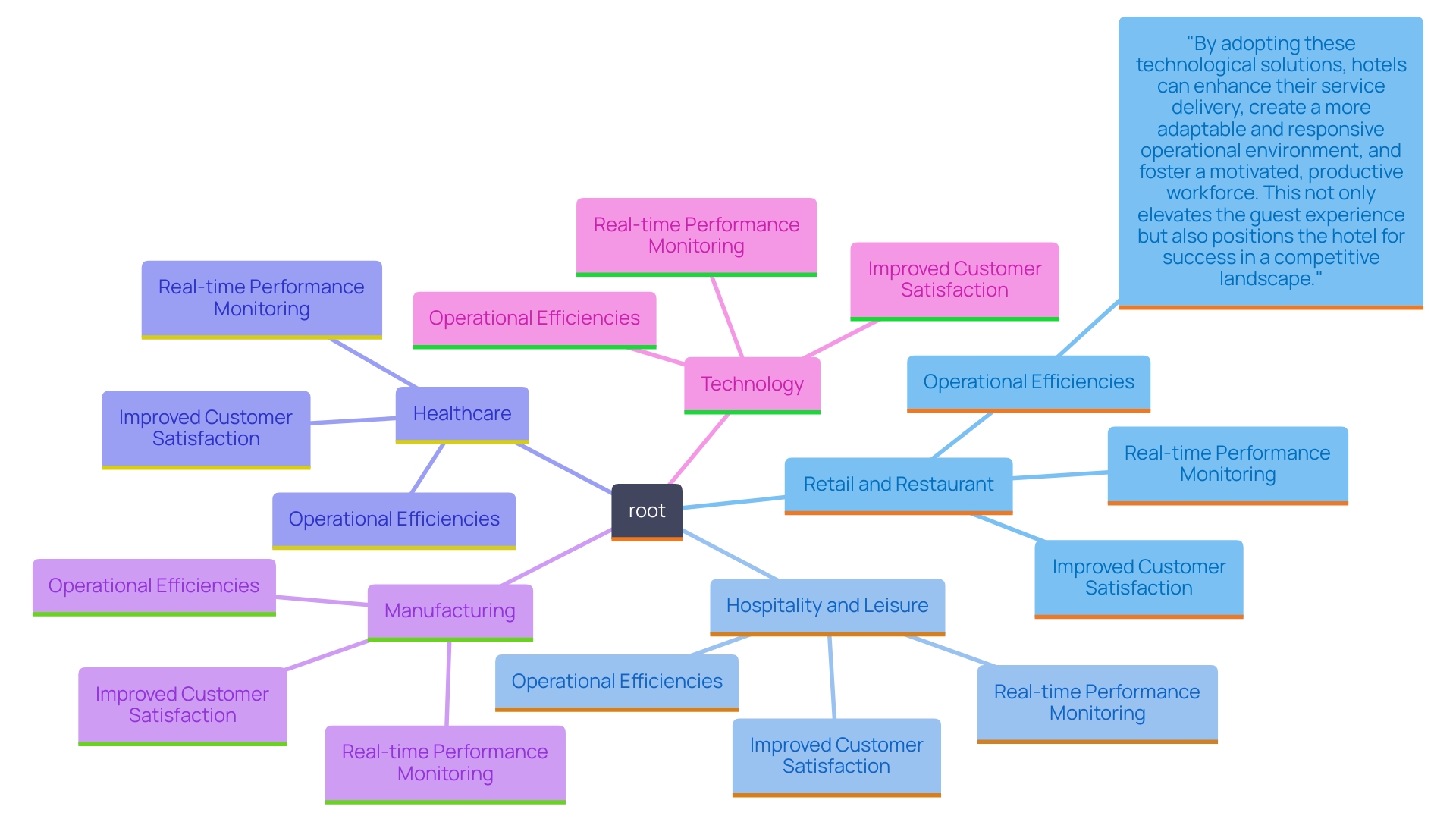
Strategic Implementation of Interim Management
To maximize the benefits of interim management during a business turnaround, organizations should consider the following strategic implementation steps:
-
Define Clear Objectives: Establish specific goals for the temporary leader that align with the turnaround strategy. This clarity will guide their efforts effectively.
-
Select the Right Interim Manager: Assess candidates based on their expertise and experience in the relevant sector. A strong fit is crucial for successful outcomes.
-
Facilitate Smooth Transition: Ensure the temporary leader has access to necessary resources and information to support a seamless transition into their role.
-
Engagement with Stakeholders: Involve key stakeholders to gain their support and insights, enhancing the temporary leader's effectiveness and acceptance within the organization.
-
Monitor Progress and Adapt: Utilize real-time business analytics from your client dashboard to continuously assess the temporary supervisor's performance against established objectives. This ongoing evaluation allows for timely adjustments, ensuring goals are met efficiently while reinforcing the importance of operationalizing lessons learned from the turnaround process to build strong, lasting relationships.
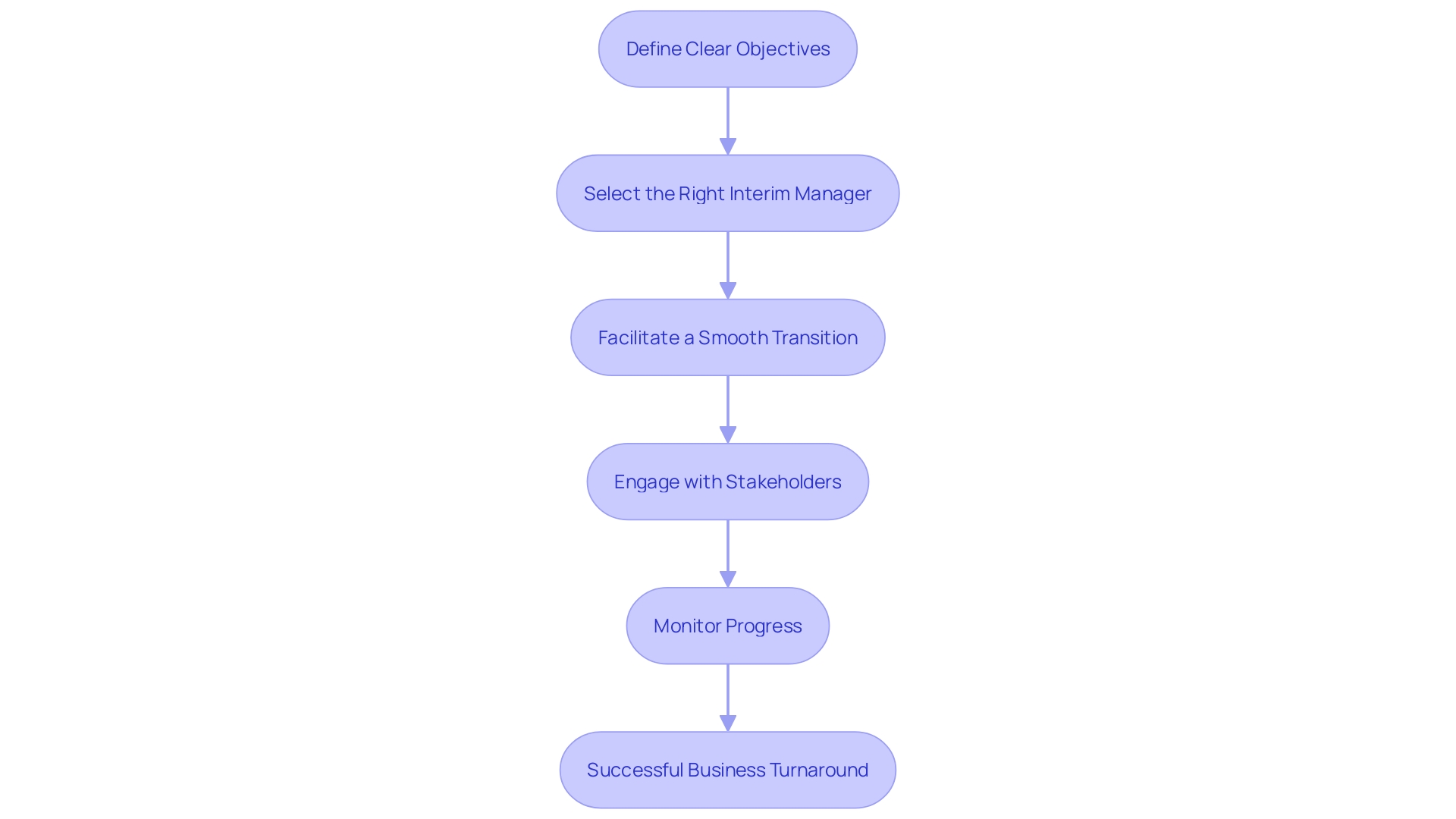
Cost Considerations in Interim Management Services
When evaluating interim management services, CFOs should consider the following cost-related factors to enhance cash flow and profitability, as outlined in our whitepaper, "Mastering the Cash Conversion Cycle: 20 Strategies for Optimal Business Performance":
-
Budgeting for Temporary Leadership: Understand the potential costs associated with hiring temporary executives, including fees, onboarding costs, and any additional expenses. By utilizing approaches from the whitepaper, such as optimizing the hiring process and negotiating terms, you can effectively manage these expenditures.
-
Return on Investment (ROI): Assess the anticipated ROI considering the temporary leader's capacity to enhance efficiency, refine processes, and aid in revenue growth. The approaches outlined in the whitepaper offer a roadmap for attaining measurable enhancements, highlighting the significance of establishing clear performance metrics.
-
Short-term vs. Long-term Costs: Compare the short-term expenses of hiring a temporary supervisor with the potential long-term savings from strategies such as reducing inventory days or streamlining accounts receivable collections. The guide discusses how these efficiencies can lead to significant cost reductions over time.
-
Performance-based Fees: Discuss the possibility of structuring compensation based on performance. This approach aligns incentives and ensures commitment to achieving specific outcomes. For example, consider implementing a tiered compensation model that rewards temporary managers for exceeding predefined targets, as suggested in the whitepaper.
-
Impact on Overall Financial Health: Analyze how temporary management can positively influence the organization’s financial stability, ultimately justifying the investment. By mastering the Cash Conversion Cycle through the techniques outlined in our whitepaper, CFOs can ensure sustained financial health and operational effectiveness, demonstrating the tangible benefits of temporary management.
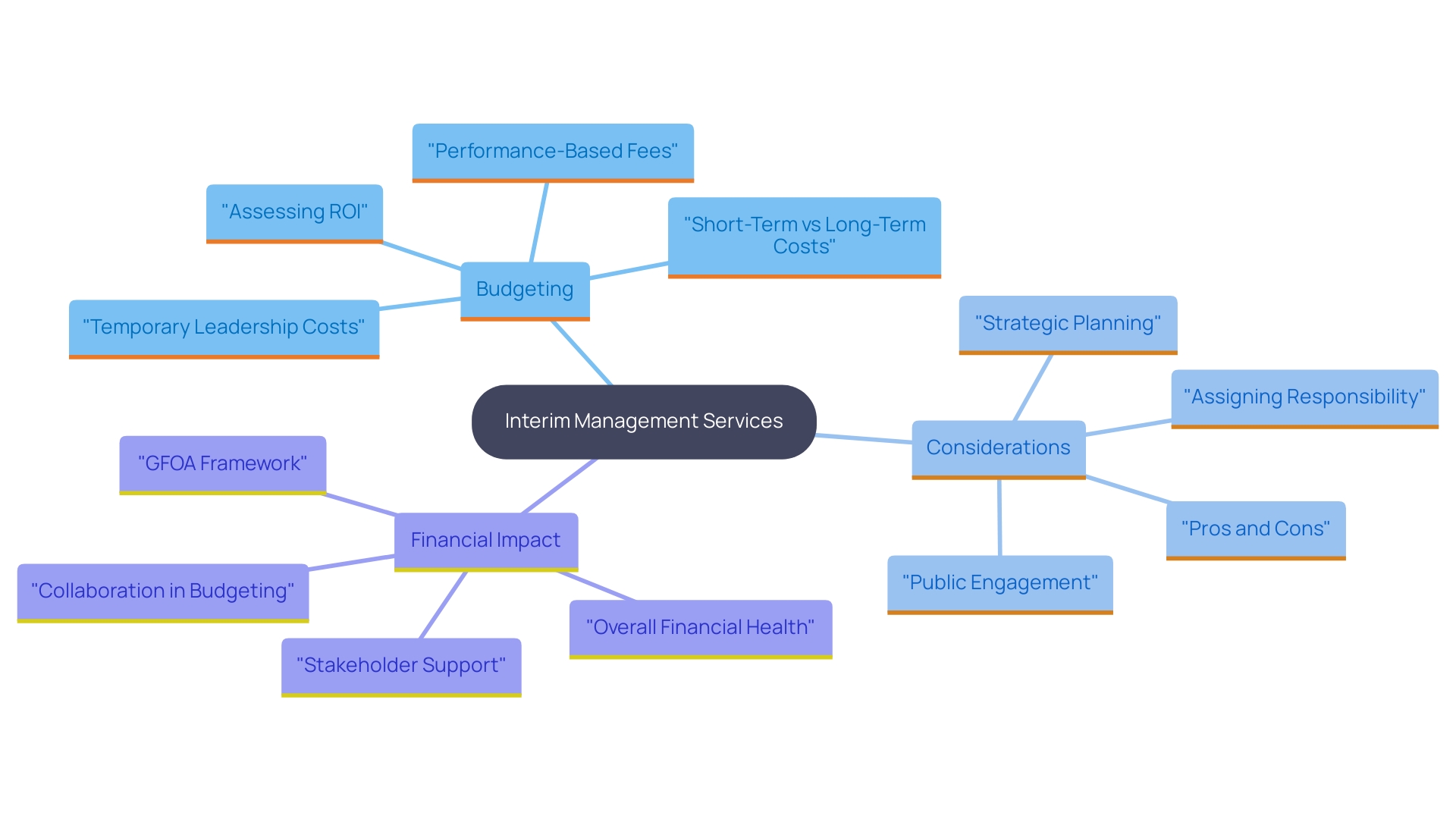
Future Trends in Interim Management Services
As the business landscape continues to evolve, several key trends in interim management services are emerging, underscored by expert insights from the guide 'Revolutionizing Operations with AI/ML' by Peter Griscom, David Bates, and Chase Hudson:
-
Increased Demand for Specialized Skills: Organizations are increasingly seeking temporary leaders with niche skills to address specific challenges, highlighting the need for tailored expertise.
-
Digital Transformation: Interim leaders are likely to play a pivotal role in driving digital initiatives, leveraging technology to enhance operations and improve customer engagement, as advocated in the guide. For example, a temporary supervisor might introduce a new customer relationship management system that employs AI to offer real-time customer insights.
-
Flexibility and Agility: The demand for flexible management solutions will grow, as businesses adapt to changing market conditions and the need for rapid responses to crises. This flexibility enables temporary leaders to adjust plans based on prompt data analysis, ensuring that choices are well-informed and timely.
-
Focus on Sustainability: There will be an emphasis on hiring temporary leaders who can implement sustainable practices within organizations, reflecting the growing importance of corporate responsibility. For instance, a temporary supervisor might create a sustainability plan that minimizes waste and improves resource efficiency.
-
Integration of Data Analytics: Interim managers will increasingly utilize data analytics to inform decision-making and assess the effectiveness of implemented plans. By continuously monitoring performance metrics through a client dashboard, they can quickly diagnose business health and modify approaches as needed. This approach is central to the transformative strategies outlined by the authors, ensuring that lessons learned from past initiatives are operationalized effectively for future success.
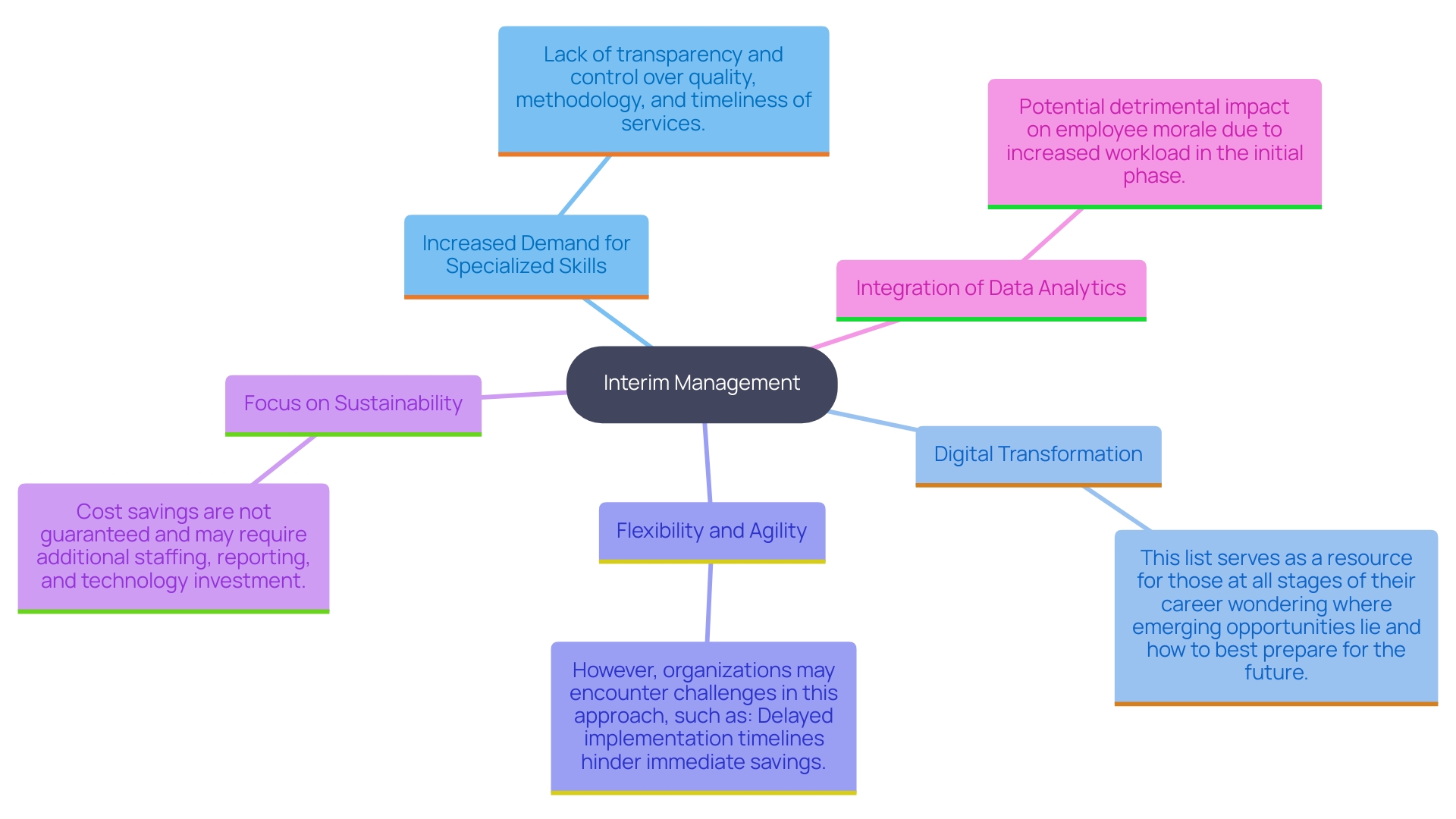
Conclusion
Interim management services stand out as a strategic asset for businesses navigating periods of change and challenge. By providing on-demand expertise, these professionals enable organizations to implement rapid solutions tailored to specific sector needs. Their ability to make swift decisions, grounded in real-time data analytics, ensures that companies can maintain competitiveness and drive performance during critical transitions.
The cost efficiency of engaging interim managers cannot be overstated. Their specialized skills come without the long-term financial burden of permanent hires, allowing organizations to focus on immediate results while safeguarding their financial health. This approach not only enhances operational effectiveness but also aligns with broader strategic goals, ultimately leading to improved ROI and sustained growth.
Looking ahead, the landscape of interim management is evolving. As organizations increasingly seek specialized skills, prioritize digital transformation, and embrace sustainability, interim managers will play a crucial role in steering these initiatives. By leveraging data analytics and maintaining flexibility, they can adapt strategies in real-time, ensuring that organizations not only survive but thrive in an ever-changing business environment.
In conclusion, embracing interim management services offers a proactive solution for businesses aiming to navigate complexities and drive performance. Organizations that harness this expertise will be better positioned to achieve their objectives, enhance operational efficiency, and foster resilience in the face of future challenges.




